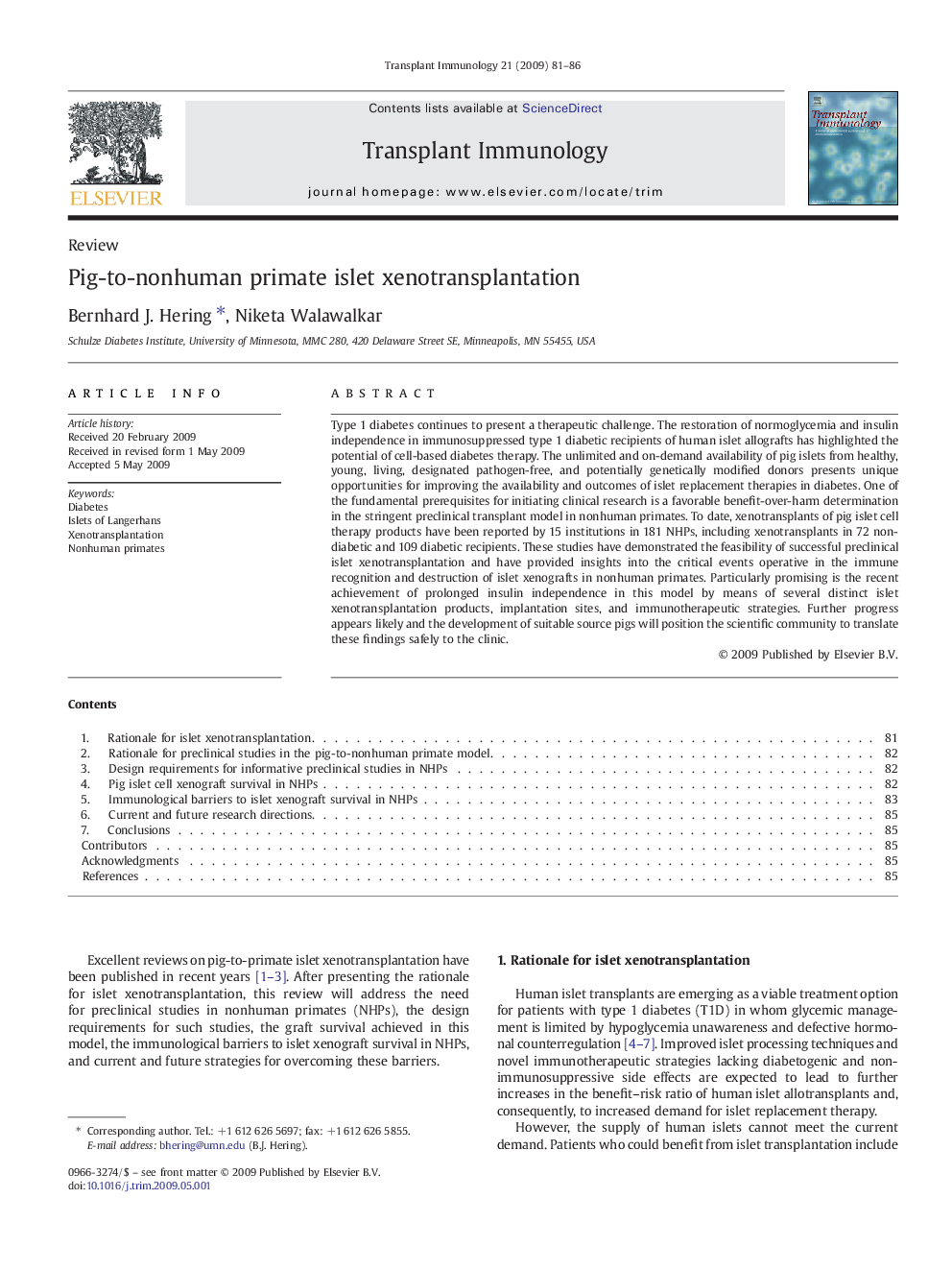| Article ID | Journal | Published Year | Pages | File Type |
|---|---|---|---|---|
| 3392305 | Transplant Immunology | 2009 | 6 Pages |
Type 1 diabetes continues to present a therapeutic challenge. The restoration of normoglycemia and insulin independence in immunosuppressed type 1 diabetic recipients of human islet allografts has highlighted the potential of cell-based diabetes therapy. The unlimited and on-demand availability of pig islets from healthy, young, living, designated pathogen-free, and potentially genetically modified donors presents unique opportunities for improving the availability and outcomes of islet replacement therapies in diabetes. One of the fundamental prerequisites for initiating clinical research is a favorable benefit-over-harm determination in the stringent preclinical transplant model in nonhuman primates. To date, xenotransplants of pig islet cell therapy products have been reported by 15 institutions in 181 NHPs, including xenotransplants in 72 non-diabetic and 109 diabetic recipients. These studies have demonstrated the feasibility of successful preclinical islet xenotransplantation and have provided insights into the critical events operative in the immune recognition and destruction of islet xenografts in nonhuman primates. Particularly promising is the recent achievement of prolonged insulin independence in this model by means of several distinct islet xenotransplantation products, implantation sites, and immunotherapeutic strategies. Further progress appears likely and the development of suitable source pigs will position the scientific community to translate these findings safely to the clinic.
